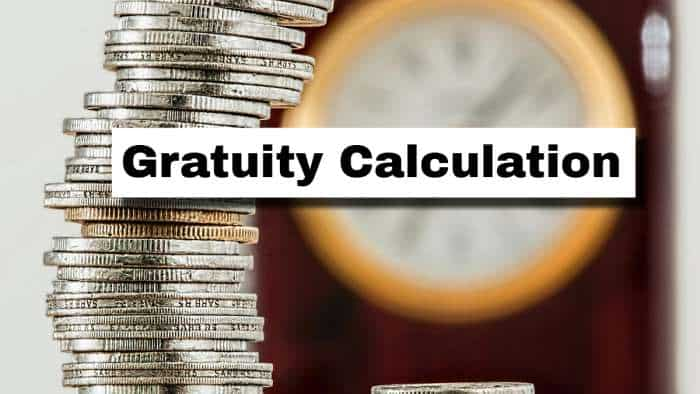Mann Ki Baat: PM Modi says Kutch will recover fast; lauds disaster management's efforts during Biparjoy cyclone
Prime Minister Narendra Modi on Sunday said that India's disaster management has become an example. "The strength of disaster management that India has developed over the years is becoming an example today," he said on his monthly radio broadcast 'Mann Ki Baat'.
)
Prime Minister Narendra Modi on Sunday expressed confidence that the people of Kutch will rapidly emerge from the devastation caused by Cyclone Biparjoy and hailed the strength of disaster management that India has developed. The cyclone made landfall near Jakhau on the Kutch coast of Gujarat on Thursday evening, felling trees and electric poles and damaging houses.
The cyclone affected eight coastal districts of Gujarat the most but the state reported no loss of life, with the authorities shifting more than a lakh people to safer places.
In his "Mann Ki Baat" radio broadcast, Modi said, "Be it the loftiest goal, be it the toughest challenge, the collective might of the people of India, the collective power provides a solution to every challenge."
"Just two-three days ago, we saw how big a cyclone hit the western part of the country... Strong winds, heavy rain. Cyclone Biparjoy caused a lot of destruction in Kutch. But the courage and preparedness with which the people of Kutch fought such a dangerous cyclone is equally unprecedented too," he said.
He noted that just a couple of days later, the people of Kutch are going to celebrate their new year -- Ashadhi Beej.
"It is also a coincidence that Ashadhi Beej is considered a symbol of the onset of rains in Kutch," he said.
"I have been going to Kutch for many years. I have also had the good fortune to serve the people there, and that's how I know very well the zest and fortitude of the people of Kutch. Kutch, which was once considered to be the place that would never be able to recover after the devastating earthquake two decades ago, today, the same district is one of the fastest growing districts of the country," he said.
"I am sure the people of Kutch will rapidly emerge from the devastation caused by Cyclone Biparjoy," Modi added.
While noting that no one has any control over natural calamities, Modi said the strength of disaster management that India has developed over the years is becoming an example today.
"There is a significant way to combat natural calamities -- viz conservation of nature. These days, during monsoon, our responsibility in this direction increases manifold. That is why today the country is making collective efforts through campaigns like 'Catch the Rain'," he said.
Pointing out that start-ups associated with water conservation were discussed in the "Mann Ki Baat" broadcast last month, Modi said this time, too, he has come to know through letters about many people who are trying their very best to save every drop of water.
He also talked about one Tulsiram Yadav of Uttar Pradesh's Banda district.
"You too know that there have always been hardships regarding water in the Banda and the Bundelkhand regions. To overcome this challenge, Tulsiram ji has built more than 40 ponds in the area, taking the people of the village along with him. Tulsiram ji has made the basis of his campaign farm water in farms, village water in villages," he said.
Today, the result of his hard work is that the groundwater level in his village is improving, Modi said.
Similarly, in Hapur district of Uttar Pradesh, people collectively have revived an extinct river, he said.
"A long time ago, there used to be a river there named Neem. As time went by, she disappeared but was always remembered in local memories and folklore. Eventually, people decided to revive this natural heritage of theirs. On account of the collective efforts of the people, the Neem river has started flowing again," he said.
The point of origin of the river, the headwater, is also being developed as an 'Amrit Sarovar', Modi said.
"These rivers, canals, lakes are not only water sources... Life's myriad hues and emotions are also associated with them," Modi said.
'Emergency was a dark period'
He also said that the people should not forget June 25, a day on which Emergency was imposed in 1975.
"India is the mother of democracy. We cannot forget the 25th of June. The day when emergency was imposed. It was a dark period in the history of India. Millions of people opposed the emergency with all their might. The supporters of democracy were tortured so much during that time that even today, the mind shudders," Modi said.
"Today when we celebrate Azadi Ka Amrit Mahotsav we must also observe such crimes. This will teach the young generations the meaning and importance of democracy," he added.
Modi said that the monthly radio broadcast had to be advanced to today instead of next Sunday, as he is proceeding to the US on an official visit on June 20 and would be busy with official engagements.
'Mann Ki Baat' usually is broadcast on the last Sunday of every month.
Referring to his leading a yoga session at the UN headquarters in New York on June 21 to mark the International Yoga Day, PM Modi appealed to all to adopt Yoga in their daily lives and make it a part of their routine.
Get Latest Business News, Stock Market Updates and Videos; Check your tax outgo through Income Tax Calculator and save money through our Personal Finance coverage. Check Business Breaking News Live on Zee Business Twitter and Facebook. Subscribe on YouTube.
RECOMMENDED STORIES

SBI Senior Citizen FD Rates: Want to invest Rs 3,00,000 in SBI FD? You can get this much maturity amount in 1 year, 3 years, and 5 years

EPS Pension Calculation: Rs 40,000 basic salary, 30 years of service, what will be your monthly EPS pension amount?

Retirement Planning: How one-time investment of Rs 11,00,000 can create a Rs 3,30,00,000 retirement corpus

SBI vs PNB vs BoB- 5 year FD Scheme: Which bank can give you higher return on Rs 1 lakh and Rs 2 lakh investment?

Monthly Pension Calculations: Is your basic pension Rs 25,000, Rs 45,000, or Rs 55,000? Know what can be your total pension as per latest DR rates

Income Tax Calculations: Is your annual salary Rs 6.75 lakh, Rs 9.25 lakh, Rs 14.50 lakh, or Rs 18.50 lakh? Know how much tax you will pay in old and new tax regimes
07:24 PM IST









 Mann Ki Baat creating awareness among people: Union Minister for Coal and Mines
Mann Ki Baat creating awareness among people: Union Minister for Coal and Mines  PM urges startups to take advantage of space sector opportunities
PM urges startups to take advantage of space sector opportunities PM Modi on Mann ki Baat: Small online payments helping build big digital economy in country
PM Modi on Mann ki Baat: Small online payments helping build big digital economy in country Prime Minister Narendra Modi's radio address `Mann Ki Baat` to take place on January 30 - See how you can share your idea
Prime Minister Narendra Modi's radio address `Mann Ki Baat` to take place on January 30 - See how you can share your idea